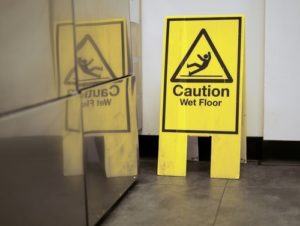If you slip and fall on someone else’s property, you may wonder if you have a viable personal injury claim. One of the first things to consider in this situation is the statute of limitations.
The statute of limitations is a law that limits your time to seek compensation through the court system.
If you fail to file a slip-and-fall claim within that amount of time, you will lose your right to do so. Contact our legal team at Jonathan Perkins Injury Lawyers for assistance if you are unsure what to do to get started or have questions about your claim. We have years of experience helping personal injury victims recover the compensation they are entitled to.
Statute of Limitations for Slip and Fall Accidents in Connecticut
In Connecticut (like most states), the statute of limitations applicable to a slip and fall injury is typically the same as other personal injury cases, such as those instances where you may need a CT car accident lawyer, which is two years.
If you believe the owner of a commercial or private property where your accident occurred is responsible for your injuries, then you must file a lawsuit against them within two years. The clock starts on this time period on the day the accident occurs. The two-year time limit extends to any personal property damage, too. For example, if you broke your watch when you fell, you must file a complaint to receive compensation to repair or replace the item within two years.
Now that you understand the statute of limitations for filing a slip and fall claim in Connecticut, it is essential that you learn what you should do if you find yourself in this situation.
Slip and Fall Laws in Connecticut
Slip and fall accidents do not always cause serious injuries. While this is true, there are situations where you may experience severe injuries that have life-changing consequences. Some common injuries that occur during slip and fall accidents include the following:
- Cuts (if your fall occurs near something sharp)
- Broken bones
- Burns (if you fall near a hot surface)
- Back or neck injuries
- Sprains or strains
Each accident is unique, and your injuries will be unique to how you fall and your body.
Some people experience a slip and fall injury and believe they are fine because they do not feel any pain immediately. However, you should still seek a medical evaluation to find any hidden injuries that may be present.
Do You Have Options if You Slip and Fall on Your Property?
You may wonder what options for recovery you have if you slip and fall on your property and damage your watch, phone, or another item. You may think this is a loss that you will have to cover.
However, filing a claim with your property insurance to cover these losses is possible. Make sure you document the damage and contact the insurance company immediately.
That would be the end of a perfect world, but this is not always the case. Sometimes, you must file a lawsuit against your insurance company to receive reimbursement. If the cost of the destroyed item is worth it, the legal process will be worthwhile.
Do You Have Options for Recovery if Your Accident Occurs on Another Party’s Property?
If you are on someone else’s property when you slip and fall, you may be able to file a claim against the property owner or occupier.
However, to have a viable claim, you must provide evidence that shows they are at fault. These elements include the following:
- Show the property owner or occupier had a duty of care
- Prove the property conditions were unreasonably dangerous
- Show constructive or actual notice
- Show that tangible damages occurred
A duty of care means the property owner is responsible for ensuring the safety of anyone coming onto their property. There are some exceptions here, like if you are told you are not allowed to be on the property or if you trespass. However, beyond these exceptions, showing the duty of care is the easiest of these elements to prove.
Having a property that is “unreasonably dangerous” occurs if no upkeep has been done. Issues that apply to this include heavy branches hanging over walkways, spills on the floor, wet floors and no warning, broken stairs, and other things like this.
Proving constructive or actual notice is not as hard as it may sound. You must prove the owner knew the issue that caused your accident and did not take steps to correct it. However, anything a reasonable person should notice will fall under this.
Real damages are also easy to prove. You need to show that you had medical bills or were unable to work due to the incident.
Protecting Your Rights to Compensation in a Slip and Fall Accident
You have rights if you are involved in a slip and fall accident in Connecticut. To protect your rights, make sure you meet the statute of limitations and other requirements set by law. If you are unsure what these are, contact our experienced personal lawyers at Jonathan Perkins Injury Lawyers for assistance.
Read More
Ice Walkway Slip and Fall in Connecticut: What Are My Rights?
How Much Does It Cost to Hire a Connecticut Personal Injury Lawyer?

